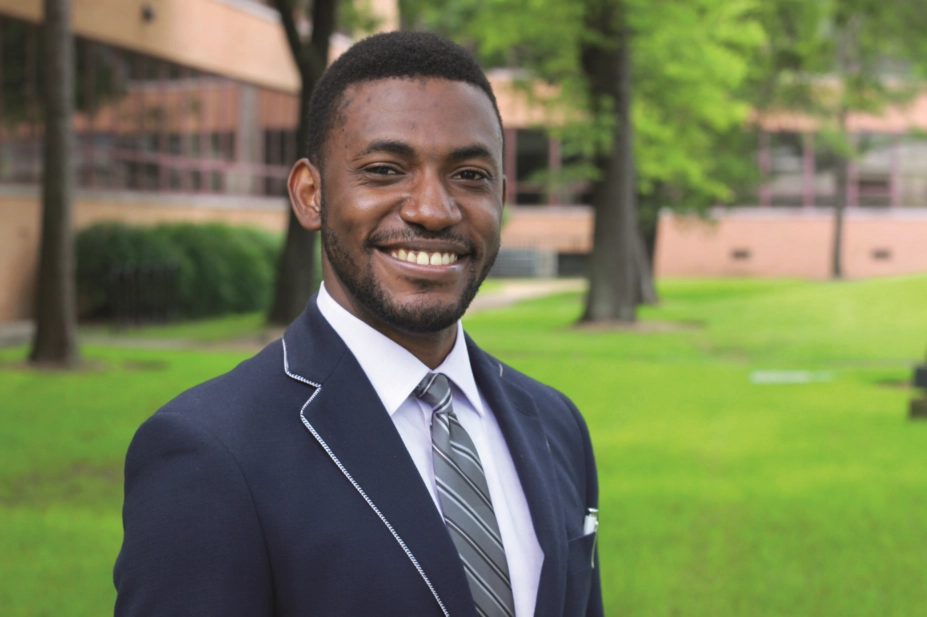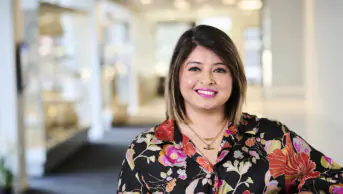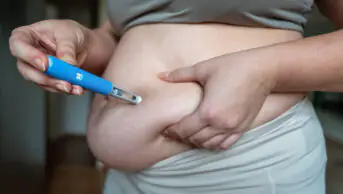
Courtesy, Oscar Ekpenyong
Oscar Ekpenyong is a senior pharmaceutical scientist in the department of pharmacokinetics, pharmacodynamics and drug metabolism at Merck Research Laboratories in South San Francisco, California.
What is your current role and how did you get there?
In 2011, I registered as a pharmacist in Nigeria after graduating with a pharmacy degree from the University of Uyo, Akwa Ibom State, Nigeria. In 2017, after graduate school, I also acquired my registration in Texas, from Texas Southern University. Since July 2017, I have been working as a senior pharmaceutical scientist in the department of pharmacokinetics, pharmacodynamics and drug metabolism at Merck Research Laboratories in San Francisco, California. I previously worked in academia as a graduate research assistant at Texas Southern University College of Pharmacy and Health Sciences, where I conducted research into novel drug delivery systems as well as supervising the teaching of undergraduate pharmacy courses. I have also previously worked as a medical representative for Sanofi-Aventis in north-east Africa, and as a hospital and retail (community) pharmacist.
Why did you decide on pharmacy as a career?
I studied pharmacy because I wanted to help find new therapies to treat emerging diseases, and I was particularly interested in drug development. I soon realised that the pharmacy profession was very diverse and that I would need higher training to do this. This led me to pursue a career in pharmaceutical science as a researcher, where I could focus on my true passion.
What is the Young Pharmacists Group Mentorship Program and why did you decide to enrol?
The Young Pharmacists Group (YPG) Mentorship Program helps young pharmacists and pharmacy students develop academic, professional and leadership skills. It also provides a global understanding of the pharmacy profession and the International Pharmaceutical Federation (FIP), the global federation representing pharmacists and pharmaceutical scientists worldwide. Members of the FIP YPG who enrol for the Mentorship Program are afforded one-on-one mentorship with an experienced pharmacist and/or pharmaceutical scientist for at least a year. Since I participated in 2016, the YPG Mentorship Program has been further developed and was relaunched in 2017.
Applicants are asked to provide a brief biography, and list their experiences within FIP and other organisations, their motivation for application, and areas of interest for mentorship. A committee designated by the YPG steering committee pairs mentees with suitable mentors, based on their areas of interest and proximity, among other factors. Mentees also have the opportunity to sign up to be mentors themselves in the future.
When I enrolled, I strongly believed that being mentored would help me better manage my learning, maximise my professional potential, and allow me to develop essential skills, including leadership. At the time, I was torn between a career in the pharmaceutical industry and academia. I believed that having a mentor would help me gain valuable insights into both areas and develop the professional attributes I needed to thrive, and I saw the YPG Mentorship Program as the perfect opportunity to enable this.
I had the privilege of being paired with Giovanni Pauletti, associate professor of biopharmaceutics and pharmacokinetics at the James L Winkle College of Pharmacy, University of Cincinnati, Ohio, and scientific secretary of FIP. Through his mentorship, I believe I evolved both academically and professionally, while also having the opportunity to build and develop leadership qualities and skills.
What lessons have you learned from the Mentorship Program?
As a YPG mentee, I benefited tremendously from Pauletti’s wealth of experience. Throughout the year, I made professional progress as a scientist and built on my self-confidence and leadership style, while forging valuable connections. During our face-to-face meeting at the American Association of Pharmaceutical Scientists (AAPS) 2016 conference, his questions and remarks about my research project helped me elucidate one of the hypotheses I was testing for my PhD research, looking at pre-clinical studies of GMC1, a novel molecule targeting FKBP52 for the treatment of castration-resistant prostate cancer, and CLBQ14, targeting methionine amino-peptidase for the treatment of infectious diseases. His counsel shaped me as an independent scientist, exposed me to critical thinking and enabled me to defend my PhD dissertation with grace and candour.
How has the Mentorship Program benefited your pharmacy career?
The impact of being mentored by Pauletti can never be overemphasised. As a soon-to-be doctoral graduate, I was torn between two different career paths and had an important decision to make. I had a career in academia to think about, while also considering a career in the pharmaceutical industry. Faced with this tough decision, I reached out to my mentor. He helped walk me through the benefits and challenges of both fields and empowered me to make the best decision. Today, I have a very fulfilling and rewarding career as a senior scientist at a pharmaceutical company.
How has your mentor/mentee relationship evolved from the start of the programme to present?
I was very enthusiastic about being mentored by Pauletti. During our first meeting, we discussed our expectations of each other and established the key areas I required mentorship in. He provided me with an Individual Development Plan, which was essential to defining our goals and served as a growth tracker/assessment of my progress. During the year, we forged a relationship that will last a lifetime. He is also readily available to provide counsel on any issues beyond the scope of the YPG Mentorship Program.
Would you recommend other pharmacists to become mentors or mentees?
Participating in such a programme and building a good relationship with a mentor requires interest, effort and perseverance from the mentee. The benefits of being mentored are tremendous and cannot be quantified. I would highly recommend the Mentorship Program to young pharmacists and pharmacy students seeking to develop themselves and their careers. It is also appropriate that experienced pharmacists contribute to the development of the younger generation to maintain the high standards of the profession and to steer it to greater heights. I am looking forward to mentoring others in the future and applying everything I have learnt from my mentor and the experience.
For more information about becoming a member of the YPG or enrolling in the YPG Mentorship Program, email: ypg@fip.org
The 78th FIP World Congress will be hosted by the Royal Pharmaceutical Society in Glasgow from 2–6 September 2018. This is the first time for nearly 40 years that the FIP World Congress has been held in the UK. Registration will open in January and more information on the event can be found here.


